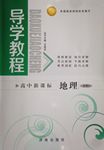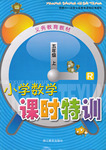题目内容
A new iphone costs about _________of a second-hand one.
A. the price of three times
B. three times the price
C. as much as the three times price
D. three times more than the price
练习册系列答案
 导学教程高中新课标系列答案
导学教程高中新课标系列答案 小学课时特训系列答案
小学课时特训系列答案
相关题目
题目内容
A new iphone costs about _________of a second-hand one.
A. the price of three times
B. three times the price
C. as much as the three times price
D. three times more than the price
 导学教程高中新课标系列答案
导学教程高中新课标系列答案 小学课时特训系列答案
小学课时特训系列答案